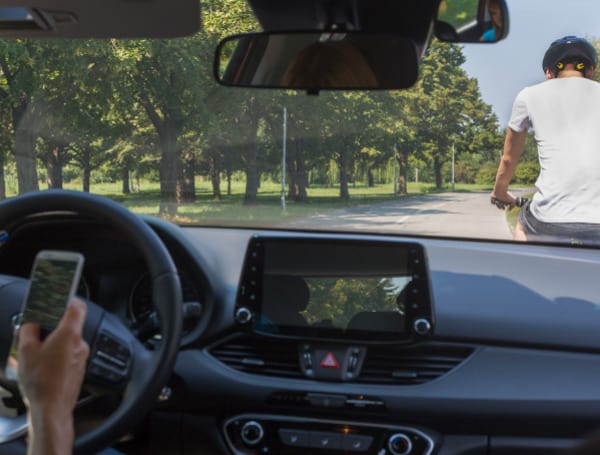(StatePoint) Driving fatalities in the United States are at the highest point since 2008, yet new research reveals that many are unaware of the enhanced risk and are actively making choices that increase the danger on our roads.
According to a new survey from Travelers, 57% of people think roadway safety is unchanged since before the pandemic. At the same time, over a third of drivers have experienced a near-miss because they were distracted while driving.
Our devices are a large part of the problem. One-third of respondents believe it is acceptable to use technology while driving and even more admit to doing so — 79% say they have made or received a phone call while driving, 74% have looked at map directions on a cell phone and 56% have read a text message or email. A growing number of drivers are also taking to social media, with 29% admitting to recording videos or taking photos using their smartphone, a number that’s increased since 2019 along with the rise of TikTok and other social media platforms.
“When you’re behind the wheel, every second matters, and anything that occupies your mind or vision is a distraction,” says Chris Hayes, assistant vice president of Transportation and Risk Control at Travelers. “While it’s tempting to use your phone, especially when it’s alerting you to texts and calls, doing so is dangerous to you, your passengers and others on the road.”
To help put a stop to distracted driving, Travelers is offering the following tips:
• Turn off notifications: Setting your phone to “do not disturb” before you begin driving is a good idea, as it can help prevent you from being tempted to check your phone for new notifications.
• Prepare beforehand: Check directions or set your GPS before you begin driving. Put your favorite playlist or radio station on before you hit the road.
• Let it wait: Do not make calls, text or otherwise manipulate your phone while driving. Even hands-free calls can pull your focus from the road. If you need to text, email, make a call, or use your phone for any other reason, pull over first.
• Recruit a passenger: Rely on your passengers to handle technology-related tasks, such as checking GPS, changing the music or radio station, and answering calls or texts.
• Speak up: Consider asking a distracted driver to put down their device. Eighty-seven percent of consumers who use a phone while driving say they would be less likely to do so if a passenger spoke up.
• Beware of other distractions: It’s important to make driving your number one priority when you’re on the road, and keep in mind that not all distractions are tech-related. For example, don’t wait until your commute to eat, brush your hair, or apply makeup. Take care of such tasks before you start the car.
For more tips and resources, including compelling stories about real-world victims of crashes due to distracted driving, visit travelers.com.
“There are more distractions than ever on today’s roadways. Ultimately, making a concerted effort to change behaviors will help prevent injuries and save lives,” says Hayes.
PHOTO SOURCE: (c) Goads Agency / iStock via Getty Images Plus
Visit Tampafp.com for Politics, Tampa Area Local News, Sports, and National Headlines. Support journalism by clicking here to our GiveSendGo or sign up for our free newsletter by clicking here.
Android Users, Click Here To Download The Free Press App And Never Miss A Story. Follow Us On Facebook Here Or Twitter Here.
Copyright 2022 The Free Press, LLC, tampafp.com. All rights reserved. This material may not be published, broadcast, rewritten, or redistributed.

